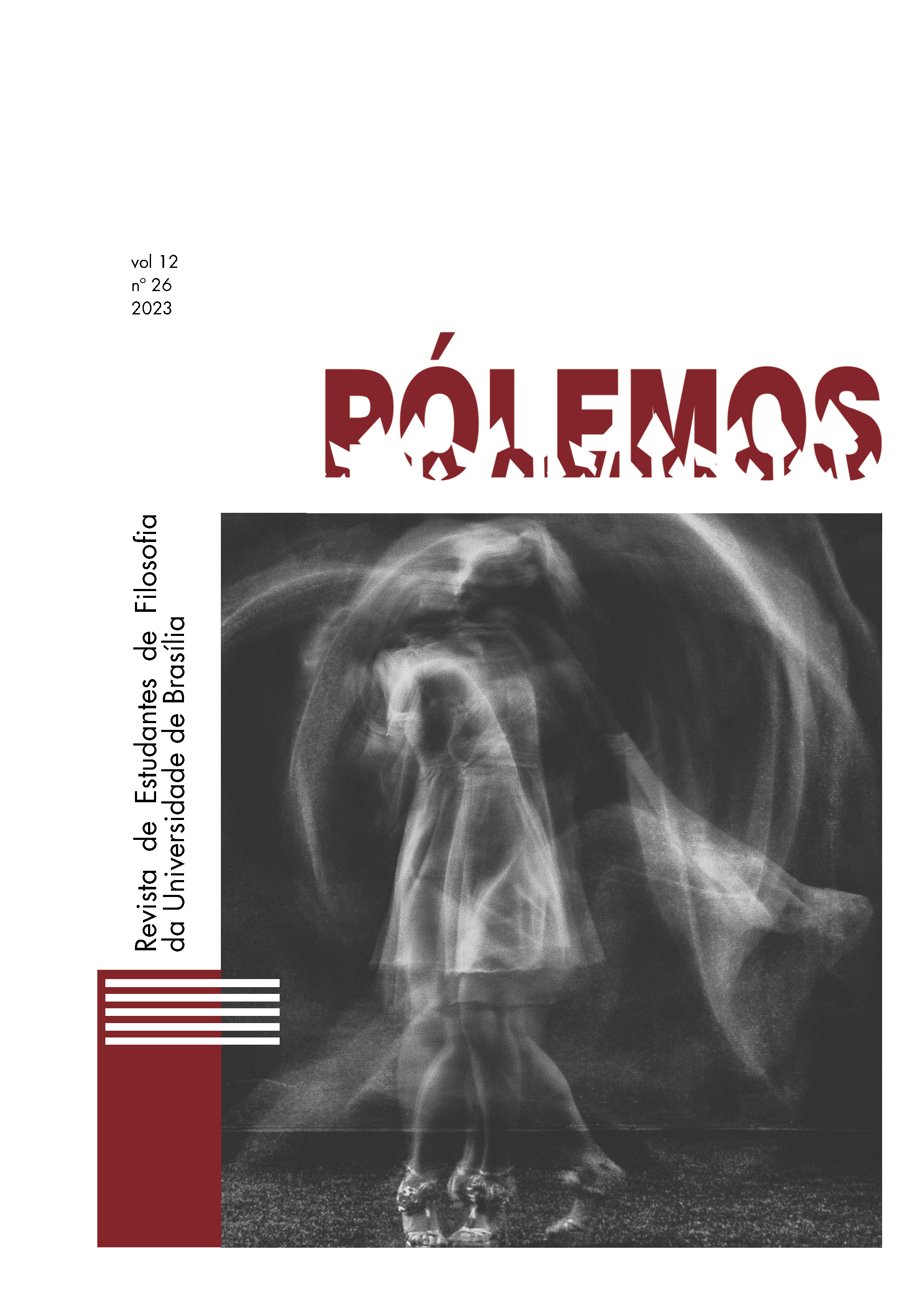THE SELF DOES NOT EXIST WITHOUT THE OTHER:
the insufficiency of the modern subject and an ethical proposal from Levinas and Gadamer
DOI:
https://doi.org/10.26512/pl.v12i26.48622Keywords:
Other. Self. Ethics. Levinas. Gadamer.Abstract
Our goal with this essay is to present some reflections capable of justify the following proposition: the Self does not exist without the Other, or that the Self only exists and is able to realize itself with the Other. Our hypothesis is that some ethical positions developed from the achievements of modern philosophy are excessively centered on the subject, ignoring an appropriate relationship between the Self and others. In order to achieve our goal, we chose a substantive element present in Levinas' thought, namely, that “first philosophy” is ethics, since metaphysical-epistemological theorizations about the world are first crossed by the Self's relationship with others. We also present the modes of relationship between Self and Other developed by Gadamer in order to indicate the type of relationship that sufficiently expresses the idea that gives life to this text.
Downloads
References
BUTLER, Judith. Vida Precária. Contemporânea, n. 1, p. 13-33, jan.-jun. 2011.
CINTRA, Benedito Eliseu Leite. Emmanuel Lévinas e a ideia do infinito. MARGEM, São Paulo, nº 16, p. 107-117, dez. 2002.
DESCARTES, René. Meditações Metafísicas. 4ª ed. São Paulo: Editora WMF Martins Fontes, 2016.
DESCARTES, René. Princípios da Filosofia. Lisboa: Edições 70, 2006.
GADAMER, Hans-Georg. Verdade e Método I: traços fundamentais de uma hermenêutica filosófica. 15ª ed. Petrópolis, RJ: Vozes, 2015.
HEIDEGGER, Martin. Os conceitos Fundamentais da Metafísica: mundo, finitude, solidão. Rio de Janeiro: Forense Universitária, 2006.
HEIDEGGER, Martin. Ser e Tempo. 10 ed. Petrópolis, RJ: Vozes – Editora Universitária São Francisco, 2015.
HUANG, Young. Cultural Hermeneutics: Interpretation of the Other. In: CHOUE, Inwon; LEE, Samuel; SANÉ, Pierre. Inter-Regional Philosophical Dialogues: Democracy and Social Justice in Asia and the Arab World. Seul: Unesco, 2006.
HUANG, Young. A Copper Rule versus the Golden Rule: A Daoist-Confucian Proposal for Global Ethics. In: Philosophy East and West, Vol. 55, No. 3, p. 394-425. Jul., 2005.
KANT, Immanuel. Fundamentação da Metafísica dos Costumes. Lisboa: Edições 70, 2007.
LEVINAS, Emmanuel. Totalidade e Infinito. Lisboa: Edições 70, 1980.
LIMA, Márcio José Silva. O sujeito, a Verdade e a Crítica ao Pensamento Moderno. In: CORDEIRO, Robson Costa (Org.). Kierkegaard, Nietzsche e Heidegger: O Pensamento Contemporâneo e a Crítica à Metafísica. Porto Alegre: Editora Fi, 2016.
NASCIMENTO, Abimael Francisco do. Fenomenologia do Rosto em Emannuel Levinas. In: Anais do III Seminário Internacional Emmanuel Levinas “Amor e Justiça. Belo Horizonte: FAJE: Escola Dom Helder de Direito, 2018. p. 9-19.
O’BRIEN, Dan. Introdução à Teoria do Conhecimento. Lisboa: Gradiva, 2013.
REALE, Giovanni; ANTISERI, Dario. História da Filosofia: Antiguidade e Idade Média. 3ª ed. São Paulo: PAULUS, 1990.
ROHDEN, Luiz. A virtude da solidariedade na hermenêutica enquanto um jogo de Fusão de Horizontes. In: ethic@ - An international Journal for Moral Philosophy, v. 19, n. 1, p. 135-148, 2020.
ROHDEN, Luiz. Hermenêutica enquanto Ética do Cuidado do Outro. In: FÁVERO, Altair Alberto; PAVIANI, Jayme; RAJOBAC, Raimundo. Vínculos filosóficos: homenagem a Luiz Carlos Bombassaro. Caxias do Sul, RS: Educs, 2020.
ROHDEN, Luiz. O outro também pode ter Razão – Para além de ele ter apenas os seus direitos reconhecidos. In: KRITERION, Belo Horizonte, nº 148, p. 259-276. Abr./2021.
SCHMIDT, Dennis J. O texto e o Jardim: a leitura do fedro de Platão sobre a leitura e a tarefa ética da hermenêutica. In: ROHDEN, Luiz (Org.). Hermenêutica e Dialética: entre Gadamer e Platão, São Paulo: Edições Loyola, 2014a.
SCHMIDT, Lawrence K. Hermenêutica. 3ª ed. Petrópolis, RJ: Vozes, 2014b.
Downloads
Published
Issue
Section
License
Copyright (c) 2023 PÓLEMOS – Revista de Estudantes de Filosofia da Universidade de Brasília

This work is licensed under a Creative Commons Attribution-NonCommercial-NoDerivatives 4.0 International License.
Todos os trabalhos que forem aceitos para publicação, após o devido processo avaliativo, serão publicados sob uma licença Creative Commons, na modalidade Attribution-NonCommercial-NoDerivatives 4.0 International Public License (CC BY-NC-ND 4.0). Esta licença permite que qualquer pessoa copie e distribua a obra total e derivadas criadas a partir dela, desde que seja dado crédito (atribuição) ao autor / Ã autora / aos autores / às autoras.


